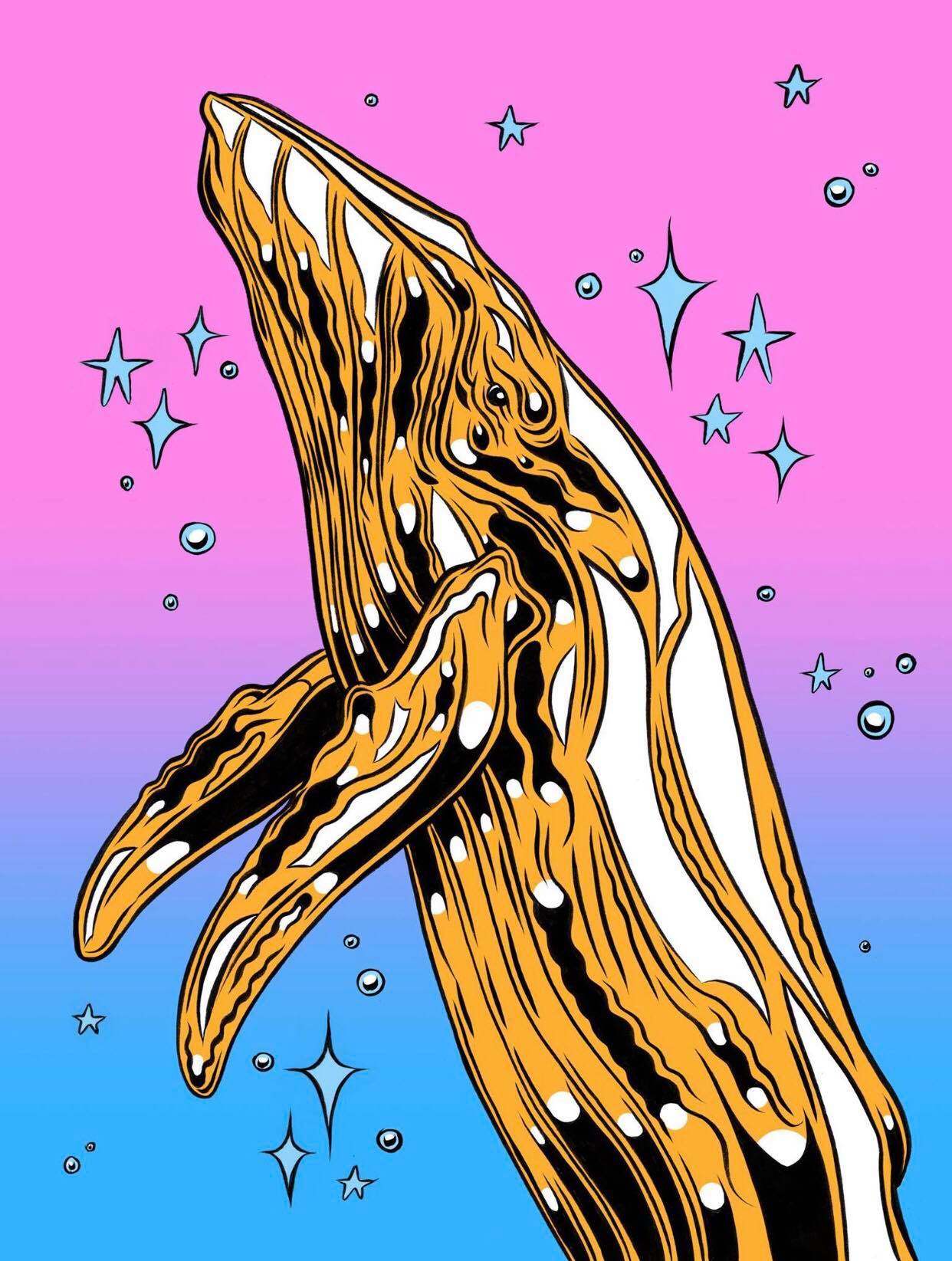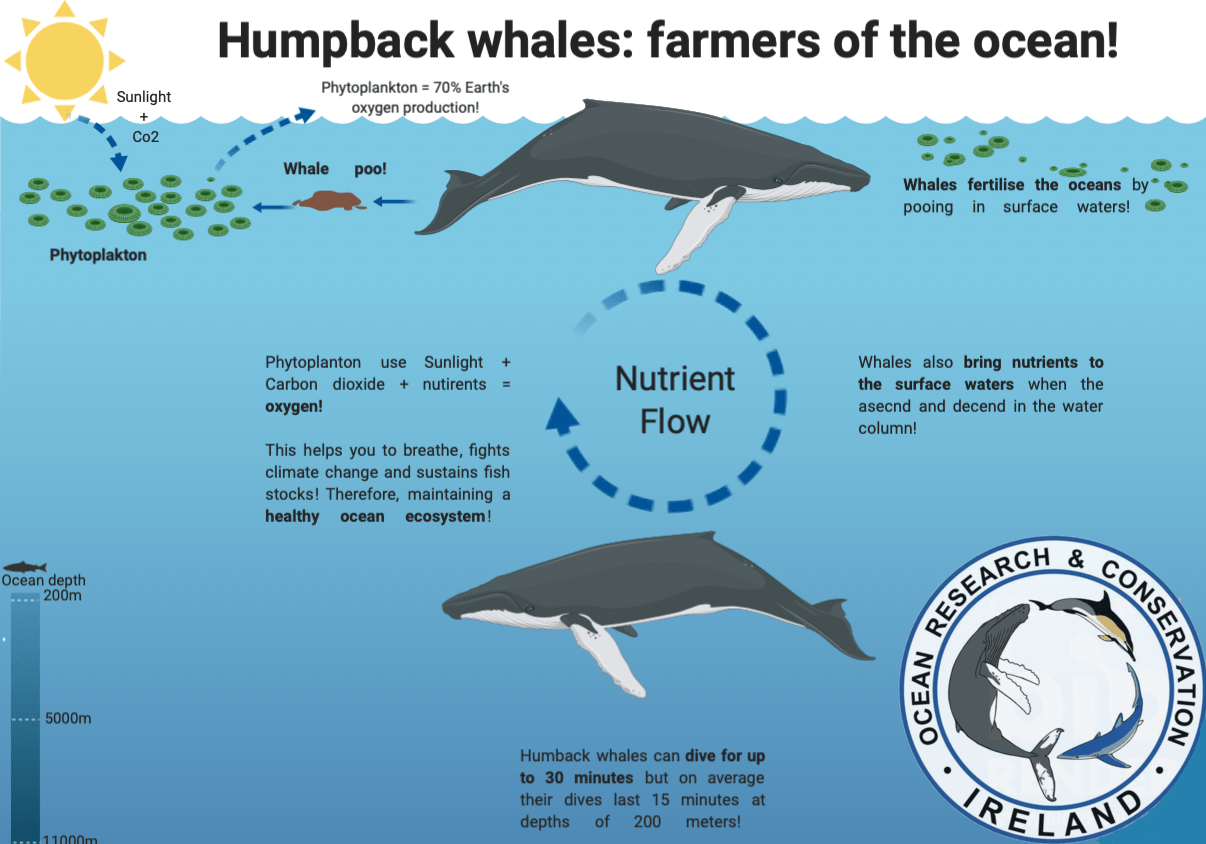The economic value of whales in the fight against climate change.
Economist and assistant director of the International Monetary Fund's Institute for Capacity Development has assessed the value of whales in the fight against climate change following a bucket-list vacation to the Sea of Cortez in Mexico in early 2017. Having joined the Whale Conservancy on a blue whale research vessel, and having marvelled at the world's largest animals, he began a mission to determine the economic value of a whale, a term they called "whale carbon".
The world's great whales are more than charismatic marine megafauna that we apron learning about because of their similarities to humans and bizarre behaviours, they also help humanity through providing an important ecosystem service - helping to fight climate change- and are worth millions of dollars per whale, according to a new analysis by economists at the International Monetary Fund (IMF).
This analysis has not been published in a peer-reviewed scientific journal, and there are still important questions left to answer to fill knowledge gaps on the amount of carbon whales can capture from our oceans, but so far it is clear economists think it is worth protecting whales for the sake of our planet in the fight against climate disruption.
Great whales, including baleen whales and sperm whales ( Balaenoptera macrocephalous
), help to sequester carbon in a variety of ways;
1. They hoard it in their fat and protein-rich bodies, storing tons of carbon each, like giant "swimming trees".
2. When a whale dies, its carcass descends to the seafloor, so that stored carbon is taken out of the atmospheric cycle for hundreds of thousands of years.
3. When whales defecate, they release enormous plumes of nutrients, including nitrogen, phosphorus, and iron, as they feed on tiny marine organisms such as plankton and krill in the oceans depths. They release their excrement at the surface providing the perfect fertiliser to stimulate the growth of phytoplankton, marine algae that pull carbon out of the air via photosynthesis.
Ralph Chami, 54, an economist from Johns Hopkins University has valued one living whale at $2 million dollars, having crunched numbers, using the market price for the right to emit carbon dioxide, and confirming them with colleague Connell Fullenkamp, an economics professor at Duke University.
Scientists such as Andrew Pershing, cheif scientific officer at the Gulf of Maine Research Institute in Portland, Maine, have been studying whales and their ability to sequester carbon for nearly a decade. Similarly Fishbach of the Great Whale Conservancy had also been contemplating the economic value of whales for a long time, however until an economist now no final value had been agreed upon.
The classic pitch for saving endangered whales has long played upon emotion, delivered by a few to the greater public, arguing that on an ethical basis protecting them is the right thing to do. Globally, whales face numerous threats from human activities, such as overfishing, bycatch, vessel strike, habitat destruction, and are stiil even hunted for their meat in Japan, Norway and Iceland, despite the global ban on whaling since 1986.
Whales were hunted commercially around the globe until the moratorium on whaling. To that point, many species populations had been hunted to the brink of extinction. For centuries, a whale was valued only when it was dead, hunted for it's meat, blubber and oil.
- © Ocean Research & Conservation Ireland (ORCireland) and www.orcireland.ie , est. 2017. Unauthorized use and/or duplication of this material without express and written permission from this site’s author and/or owner is strictly prohibited. Excerpts and links may be used, provided that full and clear credit is given to Ocean Research & Conservation Ireland and www.orcireland.ie with appropriate and specific direction to the original content.
SHARE THIS ARTICLE















